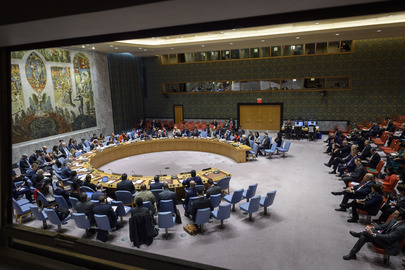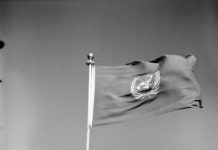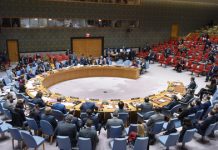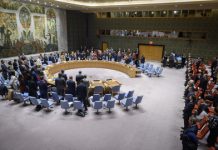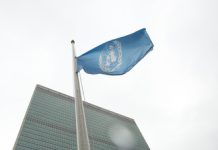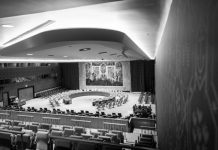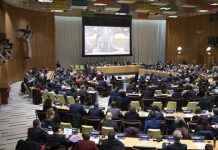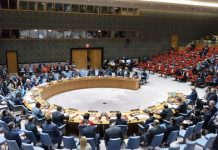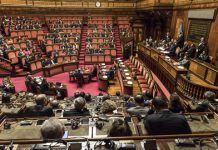UN News: Vladanka, very glad to have you in our studio! COP29 is just a couple of weeks away. Is Baku ready to host it?
Vladanka Andreeva: Thank you for the invitation. A resounding ‘yes’: Azerbaijan is ready to host the biggest annual climate gathering in the world in the beautiful city of Baku at the shore of the Caspian Sea. But allow me to elaborate. Most of the countries have usually a year or more time to prepare to host the event of this scale and importance. In the case of Azerbaijan, they have literally had ten months.
And it has been amazing to see how Azerbaijan has managed to put together a team, a COP29 presidency team, a super smart, dedicated team that has worked with partners with UN to make sure that both on the logistical aspects but also on content, they are ready to literally welcome the world in 24 days.
We had the pre-COP in Baku. Deputy Secretary-General Amina Mohammed also attended the pre-COP. And that was the moment where really an intensive diplomacy discussion has been held, especially around the finance component of the COP. One of the biggest deliveries of this COP29 is going to be the new collective quantified goal. And I think good progress was made by the parties to decide on the shape and format and on the draft text.
The week before, we had the very first Baku Climate Action Week, which was also fantastic, more than 700 participants, more than 30 events. And the idea was really to attract the non-party stakeholders to hear their views, what’s important to them. And we have partnered with Baku Climate Week. We had a very symbolic 1.5 km walk just to make sure that we are keeping the mission of 1.5 degrees alive. So it has been really, really fantastic to be part of this larger effort as the UN country team in Azerbaijan obviously is working hand in hand with COP29 presidency to make sure that this is a successful event.
UN News: Can you elaborate than that? What UN in general and your team is doing to support Azerbaijan’s efforts?
Vladanka Andreeva: It’s a larger UN development system effort. So, we are working on three tracks, if you will. The UNFCCC, as the custodian of the climate conference, is supporting COP29 presidency, really both on the logistical aspects to deliver a successful COP, but also on the content aspects and capacitating them on the negotiating issues.
Then at the global level, I have the honor to co-chair a UN Global Task Force for COP29, together with Mr. Selwin Hart, who is the Special Adviser to the Secretary-General on Climate Action and Just Transition. And we have had more than 25 UN entities that have been part of this global task force to help COP29 presidency develop their action agenda and their president’s initiatives.
The UN country team that I’m proud to lead – 18-agencies-strong in Azerbaijan – has developed our own COP29 engagement strategy. The highlight is really the climate conversations that we have initiated, 29 of them so far. We are at the mark of 25th. We have partnered with the private sector, with the academia, with media, with civil society, with young people, really trying to bring everyone and raise awareness about the urgency of climate action in Azerbaijan, but also for them to understand what they can do in their daily lives to really propel the efforts.
UN News: Hosting such a large-scale climate event, of course, puts Azerbaijan in the spotlight in terms of climate change action. What has Azerbaijan achieved so far on this path of transitioning to a greener economy?
Vladanka Andreeva: It’s an excellent question, and I think that absolutely Azerbaijan is acutely aware that they should lead by example, especially as an oil and gas producing country. And efforts are being made. As part of their national socioeconomic development plan there is a commitment, and efforts are undergoing to make sure that over 30 per cent renewable energy is part of their overall national energy balance. That’s one very important thing.
The second important path that they are on is their commitment really to reduce greenhouse gas emissions. So, they have developed so far two national determined contributions. In the very last one they have committed to cut the gas emissions by 35 per cent by 2030. Currently, they’re really leading by example. Together with the “Troika” – that’s the concept that has been developed by the COP29’s presidency: COP28, COP29 and COP30 host countries, the Emirates, Azerbaijan and Brazil – they are working on their new nationally determined contributions. And Azerbaijan is developing one right now that is economy-wide, that is really very ambitious. It will evolve around a whole society approach, if you will, almost it’s going to be an investment plan to supercharge agenda 2030. And the expectation is that they are going to present this NDC 3.0 during COP29 in Baku.
And maybe the last, the third track, that they are really working on this acknowledgment that they should make an effort to decouple the economic growth from environmental degradation. Circular economy is the approach that they are taking and efforts are being made by the UN country team. And we are going to start developing our new development cooperation framework with the country next year. Obviously, these three important pathways will be at the core and heart of what we are going to do in the next five-year period to really support Azerbaijan in their climate ambition.
Source of original article: United Nations (news.un.org). Photo credit: UN. The content of this article does not necessarily reflect the views or opinion of Global Diaspora News (www.globaldiasporanews.com).
To submit your press release: (https://www.globaldiasporanews.com/pr).
To advertise on Global Diaspora News: (www.globaldiasporanews.com/ads).
Sign up to Global Diaspora News newsletter (https://www.globaldiasporanews.com/newsletter/) to start receiving updates and opportunities directly in your email inbox for free.


